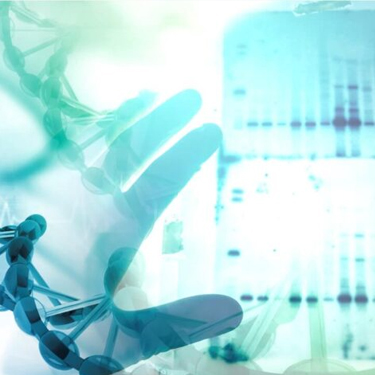
Strengthens Large Scale DNA Production and Broadens Market Reach
STONY BROOK, NY. September 11, 2015. Applied DNA Sciences has acquired the assets of privately held Vandalia Research, Inc. for $1.5 million in cash.
Vandalia’s core technology and intellectual property portfolio, allow for the large-scale production of specific DNA sequences using polymerase chain reaction (PCR). PCR canamplify a few copies of a piece of DNA, generating millions to billions of copies without the impurities of fermentation.
- Vandalia’s Triathlon™ PCR systems are self-contained and modular, can work together in mass production or can be used individually throughout the world, offering the advantage of delivering DNA locally and securely. The enclosed design should facilitate compliance with drug manufacturing guidelines in our quest to DNA mark individual doses as a major initiative in the war against counterfeit drugs.
- The acquisition provides APDN with established supply relationships across key companies in the biotechnology, pharmaceutical and diagnostic markets where Vandalia DNA is already used as a business-critical therapeutic, diagnostic and reagent and provides the company the opportunity to cross-sell its DNA-based supply chain security solutions. There will be no lapse in DNA production as we fulfil Vandalia’s current backlog and expected orders through the remainder of the current quarter and beyond.
- A new capacity for APDN will be the ability to manufacture longer DNA sequences valuable in gene therapy, DNA vaccines and diagnostics. These types of DNA are distinct from APDN’s security markers and represent a new entry into medical markets, where management believes there are ample opportunities for APDN’s broader platform.
- Derek Gregg, former CEO of Vandalia and co-inventor of its Triathlon platform, will join APDN as a consultant focused on the sale of DNA to the biotechnology and drug development industry. The company intends to move the physical assets of Vandalia to its headquarters in Long Island before the end of 2015.
The Benefits of PCR
A major concern in fermentation-based DNA production is contamination of the therapeutic DNA with residual DNA from the bacterial host. It is difficult to remove all of that bacterial DNA residue, and so residual bacterial DNA contamination in DNA vaccines or gene therapy is a persistent concern in DNA-based therapeutics.
PCR-based DNA preparation completely obviates that (important) concern. This differential is the major quality improvement obtained via the ADNAS-Vandalia technology.
Relevant Quotes
“Expanding our manufacturing capacity through the acquisition of Vandalia’s Triathlon PCR machines is opportune as we move toward converting pilot projects to commercial deployment, and creates, we believe, the world’s largest manufacturing capacity of DNA in bulk using PCR. Self-contained production, paired with our On-Site™ DNA Authentication Program that can be done with simple training, opens the opportunity for rapid deployment of DNA marking in response to the anti-counterfeiting needs of the military, border protection, law enforcement agencies and supply chains.”
“We are in the midst of a coordinated effort to use SigNature DNA to bring supply chain security to pharmaceutics and foods and, as part of this, it is essential that we immediately begin the process of becoming compliant with cGMP (Current Good Manufacturing Practice) guidelines so that we may improve these supply chains just as we have in cotton. We believe that Vandalia’s Triathlon can help us to expedite this process. We look forward to working with our new colleagues from Vandalia, creating demand for DNA and setting new records for its production.”
Dr. James Hayward, President and CEO of APDN
About Applied DNA Sciences
We make life real and safe by providing botanical-DNA based security and authentication solutions and services that can help protect products, brands, entire supply chains, and intellectual property of companies, governments and consumers from theft, counterfeiting, fraud and diversion. SigNature® DNA describes the platform ingredient that is at the heart of all of our security and authentication solutions. SigNature DNA is at the core of a family of uncopyable products such as DNAnet®, our anti-theft product, SigNature® T and fiberTyping®, targeted toward textiles, and digitalDNA®, providing powerful track and trace. All provide a forensic chain of evidence and can be used to prosecute perpetrators.
Applied DNA Sciences common stock is listed on NASDAQ under the symbol APDN, and its warrants are listed under the symbol APDNW.
Forward-Looking Statements
The statements made by APDN in this press release may be “forward-looking” in nature within the meaning of the Private Securities Litigation Act of 1995. Forward-looking statements describe APDN’s future plans, projections, strategies and expectations, and are based on assumptions and involve a number of risks and uncertainties, many of which are beyond the control of APDN. Actual results could differ materially from those projected due to our short operating history, limited financial resources, limited market acceptance, market competition and various other factors detailed from time to time in APDN’s SEC reports and filings, including our Annual Report on Form 10-K filed on December 15, 2014, as amended on March 6, 2015, and our subsequent quarterly reports on Form 10-Q filed on February 9, 2015, May 11,2015 and August 10, 2015, which are available at www.sec.gov. APDN undertakes no obligation to update publicly any forward-looking statements to reflect new information, events or circumstances after the date hereof to reflect the occurrence of unanticipated events, unless otherwise required by law.


